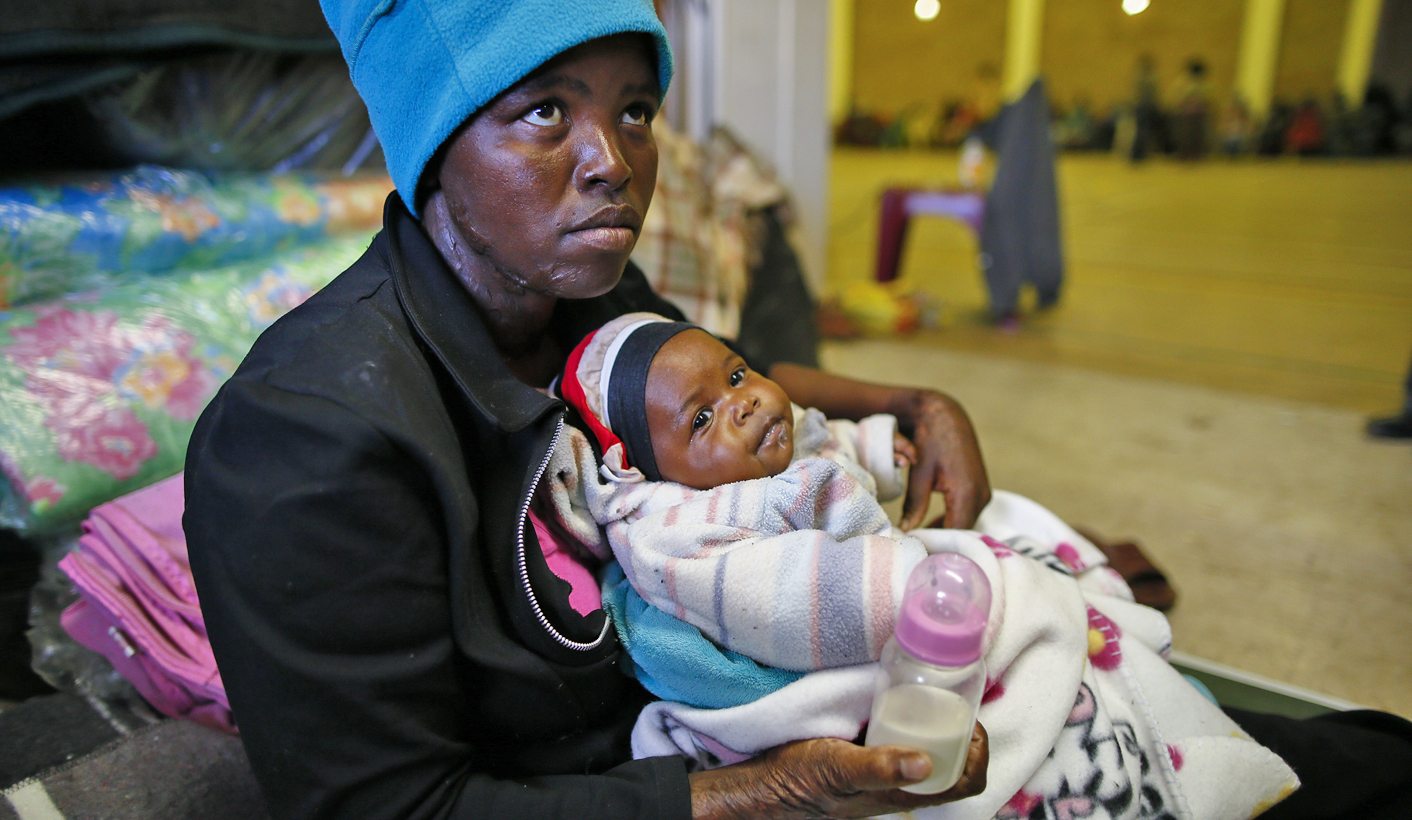Africa Check is a non-profit fact-checking website. Follow them at @AfricaCheck.
Note: This report has been updated. An earlier version wrongly created the impression that the data referred to "South African women" generally.
More than a third of South African women become mothers by the age of 19, a KwaZulu-Natal health department official claimed recently.
“...[T]he department remains concerned by the high rate of teenage pregnancy, with more than a third of South African women giving birth by the age of 19,” the department’s spokesman, Sam Mkhwanazi, was quoted saying in a report about a new implantable form of birth control being offered in government facilities.
He is not the first to make the claim. In 2007 the United Nations news service, IRIN, reported that “South Africa has a huge teen pregnancy problem – one in three girls has had a baby by the age of 20”.
‘Google it’
When contacted for the source of his claim, Mkhwanazi asked us to “check medical health science and Stats SA”.
“You can Google it,” he said.
So we did, and located the apparent source – a Demographic and Health Survey conducted between January and September 1998 by the Department of Health. (The national Department of Health later confirmed that the survey was the source of Mkhwanazi’s statement.)
This nationally representative survey collected information on sexual, reproductive and women’s health; as well as fertility and contraceptive use, among other information.
Based on that data, Mkhwanazi’s comments would appear to be in the right ballpark: 30.2% - or almost a third - of women aged 19 in 1998 had had a baby though this was not more than one third, as claimed. The data did show 35.1% had been pregnant at some stage. (It is important to note that the data only refers to 19 year-olds in 1998, and not to all South African women.)
A second demographic and health survey was carried out in 2003, however, and showed a seven percentage point drop in the number of 19-year-olds (23%) who had had a baby.
But its findings were contested – the research company carrying out the fieldwork in KwaZulu-Natal did not have adequate experience in collecting data, Diego Iturralde, Executive Manager for Demographic Analysis at Statistics South Africa (Stats SA), told us.
Issues with funding sank a third survey in 2008, but Iturralde said it has been resolved and a new demographic and health survey will be carried out next year.
Teen motherhood declining
In 2013, researchers from the University of Cape Town’s Southern Africa Labour and Development Research Unit (SALDRU) published analysis of data from six other South African national household surveys conducted post-apartheid.
Their working paper showed that in 2008 a quarter (25%) of 19 year-olds had given birth. (However, the 2008 sample size was small and it affects the level of confidence in the data. Iturralde said data on fertility from the 2011 Census will be released in September and we will then update this report.)
The SALDRU researchers found that teenage childbearing has decreased over the last two decades “with a particular decline in the proportion of women who gave birth before age 18”.
This is significant because early childbearing holds health risks for both mother and child. It can also cause the mother to miss out on school and work opportunities, leading to continuing poverty. That is why lowering teenage childbearing will assist in reaching a number of the UN’s Millennium Goals, including those on education and child mortality.
Although South Africa’s rate of teen motherhood has been decreasing, it is still high when compared to the developed world. In a 2009 journal article Professor Rachel Jewkes, the director for the Gender and Health Research Unit at the Medical Research Council, and her co-authors wrote: “South Africa’s teenage birth rate is more than twice that of the UK, for example, where teenage pregnancy rates are the highest in Western Europe.”
The promotion of gender equality and empowerment of women – by providing access to contraception to plan their pregnancies, for example – has been shown to assist in lowering teen fertility, Jewkes and her co-researchers noted. They attribute the local decline to South Africa’s adoption of policies on these.
Conclusion: Teen motherhood remains high but the claim is incorrect
The health department spokesman's claim that “more than a third” of South African women are giving birth by the age of 19 is wrong on two levels. First, one cannot speak generally of "South African women” when referring to data that deals specifically with young women who had a baby by nineteen.
Second, the claim is based on a survey that is nearly 16 years old. The most recent available data puts the percentage of 19 year-olds that had given birth at some point in their lives at closer to 25%, indicating a significant drop.
Mkhwanazi’s claim did however highlight the fact that the number of teenagers giving birth still remains very high. It is therefore commendable that South Africa’s health department is making more convenient and longer-term forms of contraception available to South African women. DM
Edited by Anim van Wyk
FACT BOX:
1 in 3 The number of 19 year-olds said to be mothers
30.2% of those aged 19 in 1998 had given birth
25% of those aged 19 in 2008 had given birth
Source: 1998 Demographic and Health Survey and the Southern Africa Labour and Development Research Unit




